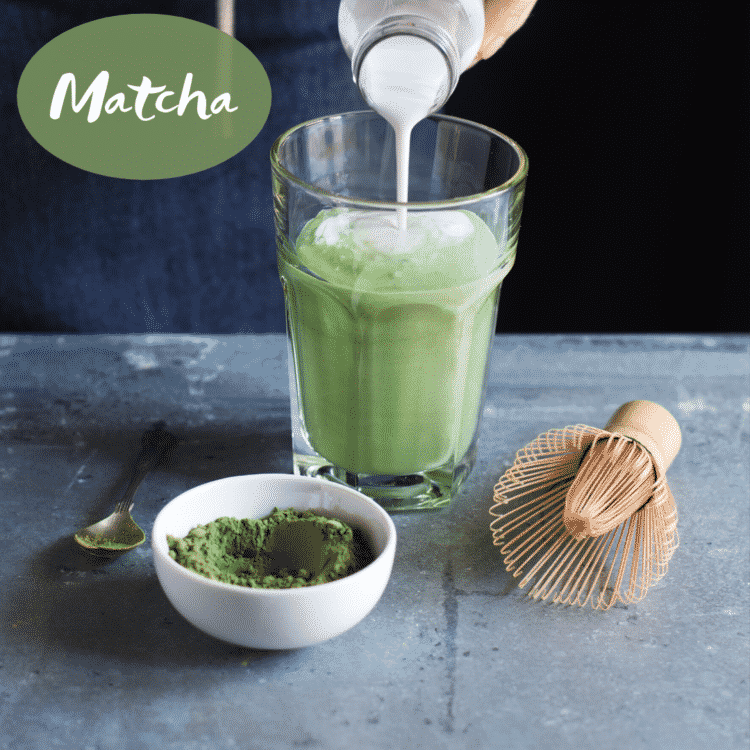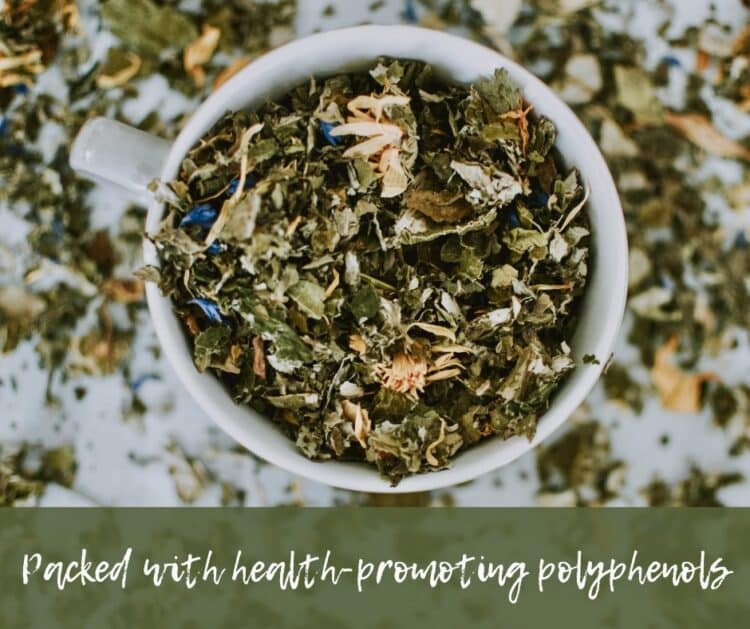You may want to consider making green tea a regular part of your daily routine. Not only can it help relax the mind and soothe the soul, it will also provide an enormous boost to your health! Read all about the health benefits of green tea, a superfood!

What is Green Tea?
Tea is one of the most widely consumed drinks in the world, second only to water. Drinking a cup of tea can be a soothing, relaxing ritual. But tea has also been used for medicinal purposes for centuries and now modern research is providing a scientific foundation for its health-promoting benefits.
Green tea comes from the camellia sinensis plant, the same plant that is used to make all traditional teas such as black tea, white tea, and oolong tea. The amount of oxidation that occurs to the leaves is largely responsible for the different types of tea. Just as an avocado or banana will brown when it is exposed to oxygen, tea leaves undergo a similar process after they are harvested. Tea leaves that are fully oxidized will darken and turn brown or black. This results in a product with a richer, more intense flavor. Tea leaves that are not oxidized at all will stay green and will yield a milder, more delicately flavored product.
Green tea leaves are typically pan-fried or steamed to halt the oxidation process before they are dried. The amount of oxidation not only affects the flavor of the tea. It affects the chemical composition of the tea and thus its health benefits.
Green Tea Products
Green tea is available in many different forms including loose tea leaves, tea bags, powdered, bottled, and in supplements sold as capsules or liquid extract. Matcha, which literally means “powdered tea,” is a special form of green tea. It’s made from grinding green tea leaves into a fine powder. It’s harvested in a slightly different way than traditional green tea and has an intense taste that’s sometimes described as grass- or spinach-like. It is traditionally prepared by whisking it with hot water to create a frothy drink. Matcha has become very popular in recent years. A wide variety of products like matcha shots, lattes, teas, and desserts can be found on coffee shop menus and in grocery stores.

Green Tea Health Benefits
Green tea relaxes the mind, enhances your mood and may boost focus and memory. This is due to a combination of caffeine and a unique amino acid called L-theanine. Caffeine has been shown to improve various aspects of brain function including memory, alertness, and mood. L-theanine increases the activity of the inhibitory neurotransmitter gamma-aminobutyric acid (GABA), which has anti-anxiety effects. It also increases the production of mood-enhancing neurotransmitters dopamine and serotonin.
Green tea is also loaded with polyphenols, which are natural plant-based compounds that have antioxidant and anti-inflammatory properties. Antioxidants are compounds that neutralize harmful free radicals that cause damage to your cells and increase your risk of chronic disease like heart disease, autoimmune disease, and cancer. Inflammation is also thought to be the root cause of many chronic illnesses and premature aging.
Catechins are a specific type of polyphenol, and green tea has an especially high amount of a catechin called epigallocatechin-3-gallate (EGCG). EGCG is responsible for many of the health-promoting effects of green tea.
There are a number of ways that these plant-based compounds can positively affect your health including:
- Helping to prevent heart disease by decreasing cholesterol, lowering blood pressure and improving blood flow in vessels
- Helping to regulate blood sugar
- Supporting brain health
- Boosting immunity
- Possibly helping to prevent certain types of cancer
- Boosting metabolism
- Supporting weight management
- Supporting bone density
- Protecting skin from aging

If all of that is not enough to convince you, green tea may even help you live longer! In a study that followed over 40,000 Japanese adults over 11 years, the consumption of green tea was associated with reduced mortality due to all causes, especially cardiovascular disease. To sum it up, you may want to consider making green tea a regular part of your daily routine. Not only can it help relax the mind and soothe the soul, it will also provide an enormous boost to your health!
Risks/Precautions
While drinking green tea is safe for most adults, there are some potential side effects. Many of the side effects occur only when consumed in massive amounts, which is more likely to occur when taking green tea supplements rather than drinking tea. These side effects are mainly from the caffeine in green tea. While green tea contains only a moderate amount of caffeine (about 35 milligrams in an 8-ounce cup), the caffeine content varies depending on the amount of tea used and the amount of time the leaves steep. People who are sensitive to caffeine can experience symptoms such as headache, anxiety, insomnia and stomach upset. Pregnant women should be sure that they are limiting their caffeine intake as recommended by their doctor.
In rare cases, green tea can interfere with iron absorption in the body and cause anemia. Supplements containing very high levels of EGCG have also been linked to liver damage. Green tea may also potentially interact with certain medications so be sure to check with your healthcare provider before consuming large amounts of it.






Debbie says
Can you please recommend a matcha, I have read some are more beneficial than others. I love your educational information and recipes! Thank you
Dr. Sonali Ruder says
Hi Debbie! I'm so happy to hear that you enjoy my site. Check out this comprehensive review on matcha powder by a fellow blogger. In general, ceremonial matcha powder is typically higher quality than culinary matcha. This review gives several good and affordable options 🙂
https://minimalistbaker.com/best-matcha-review/